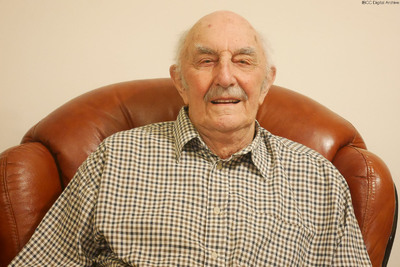Interview with Peter Greenwood
Title
Interview with Peter Greenwood
Description
Peter Greenwood Greenwood grew up on a dairy farm near Halifax, and joined the ATC before volunteering for the RAF. After training, he worked in a bomb dump manhandling the bombs, and later worked on a searchlight. He discusses flying training.
Creator
Date
2023-12-08
Coverage
Language
Type
Format
01:12:58 Audio Recording
Publisher
Rights
This content is available under a CC BY-NC 4.0 International license (Creative Commons Attribution-NonCommercial 4.0). It has been published ‘as is’ and may contain inaccuracies or culturally inappropriate references that do not necessarily reflect the official policy or position of the University of Lincoln or the International Bomber Command Centre. For more information, visit https://creativecommons.org/licenses/by-nc/4.0/ and https://ibccdigitalarchive.lincoln.ac.uk/omeka/legal.
Identifier
AGreenwoodP231208, PGreenwoodP2302
Collection
Citation
Brian Wright, “Interview with Peter Greenwood,” IBCC Digital Archive, accessed October 6, 2024, https://ibccdigitalarchive.lincoln.ac.uk/omeka/collections/document/49893.
Item Relations
This item has no relations.

